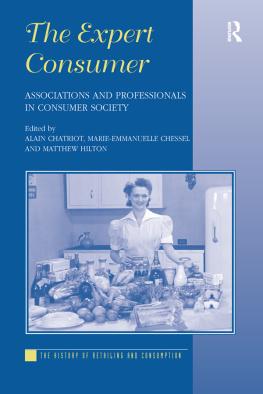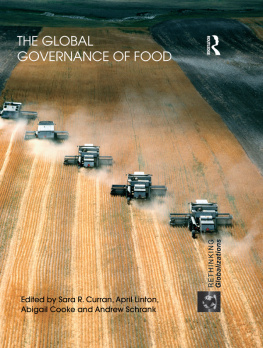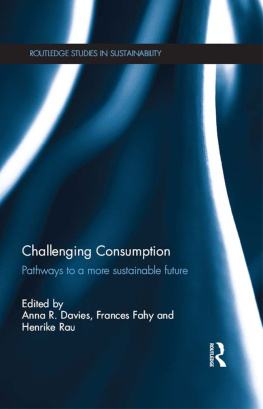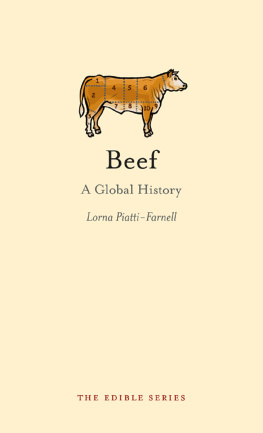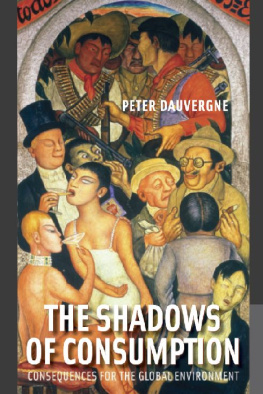LOOKING
BEHIND THE
LABEL
GLOBAL RESEARCH STUDIES
is part of the Framing the Global project, an initiative of Indiana University Press and the Indiana University Center for the Study of Global Change, funded by the Andrew W. Mellon Foundation.
Advisory Committee
Alfred C. Aman Jr. | Patrick OMeara |
Eduardo Brondizio | Radhika Parameswaran |
Maria Bucur | Heidi Ross |
Bruce L. Jaffee | Richard R. Wilk |
LOOKING
BEHIND THE
LABEL
Global Industries and the
Conscientious Consumer
TIM BARTLEY
SEBASTIAN KOOS
HIRAM SAMEL
GUSTAVO SETRINI
NIK SUMMERS

This book is a publication of
INDIANA UNIVERSITY PRESS
Office of Scholarly Publishing
Herman B Wells Library 350
1320 East 10th Street
Bloomington, Indiana 47405 USA
iupress.indiana.edu
2015 by Indiana University Press
All rights reserved
No part of this book may be reproduced or utilized in any form or by any means, electronic or mechanical, including photocopying and recording, or by any information storage and retrieval system, without permission in writing from the publisher. The Association of American University Presses Resolution on Permissions constitutes the only exception to this prohibition.
The paper used in this publication meets the minimum requirements of the American National Standard for Information SciencesPermanence of Paper for Printed Library Materials, ANSI Z39.481992.
Manufactured in the United States of America
Cataloging information is available from the Library of Congress
ISBN 978-0-253-01648-5 (cloth)
ISBN 978-0-253-01656-0 (paperback)
ISBN 978-0-253-01662-1 (ebook)
1 2 3 4 5 20 19 18 17 16 15
CONTENTS
ACKNOWLEDGMENTS
THIS BOOK REPRESENTS THE COLLABORATIVE EFFORT OF THIS TEAM of authors. Some of us came to the project with expertise on consumer behavior and debates about conscientious consumerism, while others had focused more on the application of standards in global industries. We have learned a great deal from one another, though a series of conversations and through an iterative process of sketching, writing, and rewriting the manuscript.
The team of authors also benefited from a much larger set of people who supported our research in various ways. The full list is too long to mention, and it would include numerous people we have interviewed in the field. We thank them for being generous with their time and knowledge. A partial list of others who supported our research, took it in new directions, or otherwise facilitated our work includes Graeme Auld, Suzanne Berger, Teri Caraway, Ben Cashore, Greg Distelhorst, Kevin Doran, Niklas Egels-Zandn, Deborah Fitzgerald, Thomas Kochan, Kai Lee, Richard Locke, Sarah Lyon, Errol Meidinger, Ethan Michelson, Tad Mutersbaugh, Ruth Norris, Hari Nugroho, Timea Pal, Michael Piore, Christian Resch, Ben Rissing, Mari Sako, Ulrike Samer, Andrew Schrank, Binbin Shu, Peter Sprang, Edward Steinfeld, Judith Tendler, Eric Thun, Zhuo Wang, and Lu Zhang, as well as members of Hewlett-Packards social auditing team, the Center for International Forestry Research (CIFOR), and the Department of Sociology at Sun Yat-Sen University.
Valuable feedback on conceptualization and writing was provided by Christi Smith, Rachel Schurman, and the Framing the Global Fellows, who are Manuela Ciotti, Deborah Cohen, Stephanie De Boer, Lessie Jo Frazier, Zsuzsa Gille, Anne Griffiths, Rachel Harvey, Prakash Kumar, Michael Mascarenhas, Deirdre McKay, Sean Metzger, Faranak Miraftab, Alex Perullo, and Katerina Teaiwa. We thank this group (of which Bartley was a member), its intrepid leaders, Hilary Kahn and Deborah Piston-Hatlen, and its funders at Indiana University and the Mellon Foundation for support and encouragement throughout the project.
Our editor at Indiana University Press, Rebecca Tolen, deserves a great deal of credit for helping us conceptualize the project and integrate its various pieces and for very effectively moving the project toward publication. Others at the press, including Mollie Ables, Nancy Lightfoot, and Janet Rabinowitch, also made key contributions. We thank Jill R. Hughes for copyediting and Susan Storch of Illuminating Indexing for preparing the index.
COMMONLY USED ACRONYMS
ACFTU | All China Federation of Trade Unions |
APP | Asia Pulp and Paper |
APRIL | Asia Pacific Resources International Limited |
ATOs | Alternative Trading Organizations |
AZPA | Azucarera Paraguaya |
BSCI | Business Social Compliance Initiative |
CCC | Clean Clothes Campaign |
CSA | Community Supported Agriculture |
CSR | Corporate Social Responsibility |
DAP | Desarollo Agricola Paraguaya |
EICC | Electronic Industry Citizenship Coalition |
ETI | Ethical Trading Initiative |
FLA | Fair Labor Association |
FLO | Fairtrade Labelling Organization |
FSC | Forest Stewardship Council |
FWF | Fair Wear Foundation |
ILO | International Labor Organization |
INGO | International Nongovernmental Organization |
LOHAS | Lifestyles of Health and Sustainability |
NGO | Nongovernmental Organization |
PEFC | Programme for the Endorsement of Forest Certification |
RSPO | Roundtable on Sustainable Palm Oil |
RTRS | Roundtable on Responsible Soy |
SAI | Social Accountability International |
SFI | Sustainable Forestry Initiative |
UNITE | Union of Needletrades, Industrial, and Textile Employees |
WRAP | Worldwide Responsible Accredited Production |
WRC | Worker Rights Consortium |
WTO | World Trade Organization |
WWF | previously World Wildlife Fund or Worldwide Fund for Nature |
LOOKING
BEHIND THE
LABEL

INTRODUCTION
Rules, Responsibilities,
and Rights in the Global Economy
THE FURNITURE SHOPPING TRIP WAS MORE COMPLICATED THAN expected. Searching for a new headboard, my wife and I (Bartley) hoped we would find something that was well made, preferably under decent conditions. When we asked about items made from wood certified by the Forest Stewardship Council, we mostly got blank stares or information that seemed intended to divert our attention. One saleswoman was telling us proudly about the stores furniture being made in the USA when we saw Made in Vietnam stamped in large letters on the back of one piece. We knew that logs were being harvested illegallynot to mention unsustainablyin Laos, Indonesia, and Russia and shipped to factories in Vietnam and China to make furniture for consumers in North America and Europe. We also knew that the young women and men working in these factories endured health hazards and long hours to meet the low prices and fast delivery times that retailers demanded. Not that Made in the USA, even if we could find it, would be a perfect guarantee either, since labor laws are frequently violated here as well, and unsustainable forestry is not unique to developing countries.
Next page

